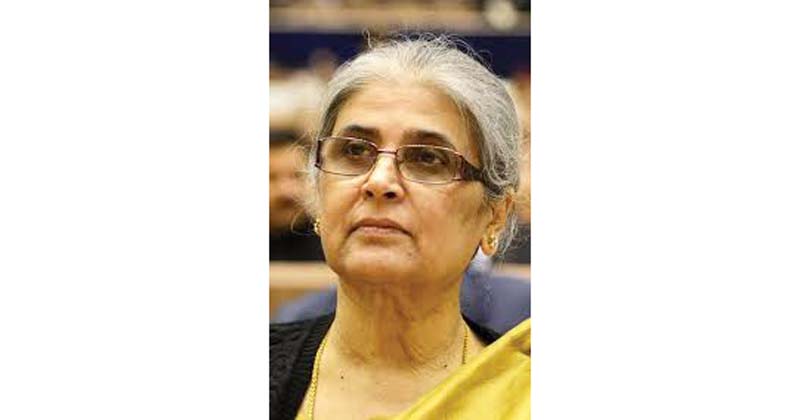Most of DCs submit replies to SEC, others to follow
Process expedited to meet March 2022 deadline
Sanjeev Pargal
JAMMU, Oct 6: Expediting the process for delimitation of Assembly constituencies in Jammu and Kashmir to meet March 2022 deadline, the Delimitation Commission headed by Justice (Retired) Ranjana Prakash Desai has sought suggestions/replies on 290 memorandums received by it during its first four days visit to the Union Territory from July 6-9.
The Commission had received at least 290 representations from political parties and stakeholders, ranging from partially unfreezing 24 seats falling in Pakistan-occupied Kashmir, postponing the exercise till Statehood is restored, adequate reservation of seats for Scheduled Castes, Scheduled Tribes, Kashmiri Pandits, PoJK and West Pakistani refugees among others and ensuring every region gets its due share in the Assembly seats when it undertook its first visit to the Union Territory for four days visiting different districts of both the divisions.
Official sources told the Excelsior that the Delimitation Commission had forwarded all 290 representations to the State Election Commission (SEC) which, in turn, referred them to 20 Deputy Commissioners of Jammu and Kashmir, who also happen to be the District Electoral Officers (DEOs).
“Most of the Deputy Commissioners have replied to the suggestions/queries while some others are in the process of doing so,” sources said, adding that the DEOs have submitted or will submit their suggestions/replies to the SEC which will forward them to the Delimitation Commission.
According to sources, majority of suggestions/queries raised in the memorandums submitted to the Delimitation Commission, totalling 290, pertained to reservation of seats for different communities and castes including Scheduled Castes, Scheduled Tribes, PoJK and West Pakistan refugees, Kashmiri Pandits etc.
Certain other suggestions were regarding early completion of delimitation process and conduct of Assembly elections, restoration of Statehood to Jammu and Kashmir, inclusion of certain areas in particular districts/constituencies etc.
“Some other suggestions were just political in nature but the Delimitation Commission has forwarded all memorandums/suggestions to the State Election Commission which referred them to the Deputy Commissioners for replies,” sources said, adding the Commission wants process of delimitation of the Assembly constituencies to be free and fair and that is why it submitted all memorandums for replies to the District Electoral Officers.
Sources said the Delimitation Commission was going ahead with its process despite referring certain territorial disputes within the districts to the Survey of India, which was exclusively reported by the Excelsior last month.
The disputes had arisen due to haphazard creation of eight districts in Jammu and Kashmir by the Congress-PDP coalition Government headed by Ghulam Nabi Azad followed by administrative units including tehsils and blocks by the National Conference-Congress regime led by Omar Abdullah. The districts, tehsils and blocks were created without proper demarcation of the boundaries leading to overlapping of territories of the districts as well as the Assembly constituencies.
During its four days visit to the Union Territory, the Commission had indicated that it might conduct another visit to Jammu and Kashmir. The Commission has its term till March 7, 2022 and it is trying to meet the deadline. The Commission was set up on March 6, 2020 with one year tenure which was extended for another year in March 2021.
Once the delimitation exercise is completed, the number of Assembly seats in Jammu and Kashmir will go up from 83 to 90.
Twenty-four seats of the Assembly continue to remain vacant as they fall under PoJK.
While splitting Jammu and Kashmir into two Union Territories through the Reorganization Act, the Union Home Ministry had increased Assembly seats of Jammu and Kashmir by seven taking total seats to 114—-24 of which are reserved for PoJK while election will be held for 90 seats.
Erstwhile State of Jammu and Kashmir had 111 seats including 24 reserved for PoK while elections were held for 87 seats. With creation of Ladakh as Union Territory, four seats of the region were reduced and the Assembly was left with 83 seats. However, with increase of seven seats, J&K UT will have an Assembly of 90 seats. Two Women MLAs will be nominated to the House, which was the position earlier also.
In the previous Assembly, Kashmir had 46 seats, Jammu 37 and Ladakh four.
Delimitation of the Assembly constituencies was last held in 1994-95 during the President’s Rule when seats of the erstwhile State Assembly were raised from 76 to 87. Jammu region’s seats were increased from 32 to 37, Kashmir’s from 42 to 46 and Ladakh’s two to four. However, the delimitation was freezed in 2002 by the then National Conference Government headed by Dr Farooq Abdullah in lines with the decision taken by then Central Government led by Atal Bihari Vajpayee.
Elections to the Legislative Assembly will be held only after delimitation of Assembly constituencies is completed.


